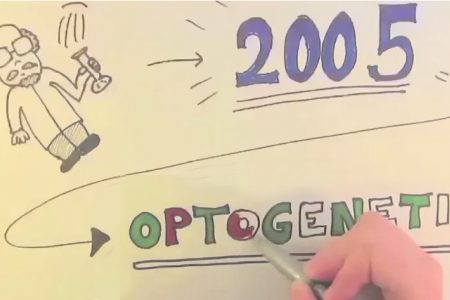Could you recognize our future Einstein?
Did you know Einstein didn’t talk till he was four or read till he was seven? Or that Edison’s parents and teachers thought him retarded? Today we consider Einstein and Edison geniuses. How come their giftedness was not recognized when they were children?
Let’s start with: “what is giftedness?” We automatically think of high intelligence. But it’s so much more than that. One of the most prevalent views nowadays is that giftedness is defined by the interaction between three basic traits: the ‘obvious’ above-average general and/or specific abilities, high levels of task commitment, also known as motivation, and lastly, high levels of creativity (Renzulli, 2012). In the Netherlands it is estimated that about 3-5 % of population is gifted, which amounts to one gifted child per classroom on average.
But how do we recognize a gifted child in daily life?
Gifted children have a tendency to start speaking early and have a highly developed vocabulary. They often surprise you when they start speaking because they use more advanced words and sentence structures than you might expect from a child. At the same time they are able to speak in more simple terms when talking to their younger siblings or peers.
They have boundless curiosity for everything they see or hear. And as you field their incessant questions, don’t think a simple answer will end their quest, because they want a profound and thorough explanation. If they ask you “How is it possible that I can hear my thoughts without saying them out loud?” a simple answer like “It has to do with your brain” will not suffice.
Often gifted children are able to read before they start school. It’s not uncommon for them to have taught themselves to read. When it comes to learning abilities, gifted children stand out by having an ability to learn quickly and efficiently, seemingly without any effort. They have a tendency to focus on certain areas of interest and devour information about these topics. When engaged in this, they can concentrate for unusually long periods of time. Don’t be surprised if a gifted child can tell you enthusiastically about wormholes and black holes… and just won’t stop telling you about it in great detail.
Not only do they have an understanding of their own thinking and learning, they are also highly creative. They enjoy solving problems and often do so in creative ways, by making connections between seemingly unrelated concepts and ideas.
They are highly sensitive to sound, taste, and touch; they have deep emotional feelings and are highly empathic (Fornia & Frame, 2001). This leads gifted children to experience their surroundings intensely. This sensitivity, combined with an appreciation of natural beauty and the small things in life, such as flowers, animals and sunsets, may astound you as an adult.
Gifted children are not only highly sensitive, but can also often be very intense, which is evident in their intellectual pursuits, emotional reactivity, power struggles with authority figures, and overall impatience. They are often strong, natural leaders who take charge and lead their peers.
Why is it difficult to recognize a gifted child?
With this list of characteristics it should be easy to identify giftedness, right? However, the difficult part of recognizing a gifted child lies in the fact that such children can be as different from one another as from the rest of the population. Not all gifted children learn to speak and read early; some speak rather late, like Einstein. Not all gifted children shine in IQ tests, or in any other tests.
Above all, gifted children have a tendency to develop performance anxiety. They are often perfectionists and set very high standards for themselves. Too high! To cope with the feeling of loss of control and frustration, they may refrain from doing the task altogether. Teachers and parents may label this behavior as “they are not able to do this”.
Is not recognizing giftedness a problem?
Even though gifted children have a high capacity for academic study and creativity, they do not always thrive at school or in society. One of the biggest problems about not recognizing a gifted child in the classroom is that they tend to underperform because they are bored and thus lack motivation. They quickly shift their attention or appear unfocused when doing something they perceive as unchallenging or uninteresting, which ultimately may lead to acting out and behavioral problems.|
A nuanced view is called for: The vast majority of gifted children complete their education without problems. Nevertheless, the question does remain whether we foster our future Einsteins and Edisons in such a way that they can fulfill their full potential.





